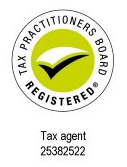Running a business comes with a lot of financial responsibilities, and as a business owner, you’ve probably come across terms like BAS (Business Activity Statement) and IAS (Instalment Activity Statement). While they may sound similar, understanding the differences between these two statements is crucial for maintaining compliance and staying on top of your tax obligations. In this article, we’ll break down the nuances of both BAS and IAS and provide actionable advice to help you navigate through them with ease.
So what is BAS?
Let’s start by demystifying the BAS, shall we? The Business Activity Statement is a form that Australian businesses use to report their Goods and Services Tax (GST), pay their GST liability, and report other tax obligations. It’s typically lodged either monthly or quarterly, depending on the size and turnover of your business.
What you need to know about BAS:
- GST Reporting: BAS requires you to report your business’s GST-related transactions during the reporting period. This includes details of your taxable sales, GST-free sales, input tax credits, and purchases subject to GST.
- Other Taxes: Besides GST, the BAS also covers other taxes such as Pay As You Go (PAYG) withholding, Fringe Benefits Tax (FBT), Luxury Car Tax (LCT), and Wine Equalisation Tax (WET). These additional taxes, if applicable to your business, need to be reported and paid through the BAS.
- Lodgement and Payment: After completing the BAS, you need to lodge it with the Australian Taxation Office (ATO) and pay any amounts owing by the due date. Timely lodgement is essential to avoid penalties and maintain compliance.
Understanding IAS
Now, let’s look at the Instalment Activity Statement (IAS). While the IAS may seem similar to the BAS, there are some key differences you should be aware of:
- Income Tax Instalments: The primary purpose of the IAS is to report and pay your business’s income tax instalments. These instalments are calculated based on either your business’s gross income or the instalment rate advised by the ATO.
- PAYGWH Instalments: Similar to the BAS, the IAS also covers Pay As You Go Withholding (PAYGWH) instalments. These are advance payments you make towards your expected PAYGWH tax liability for the financial year.
- GST and Other Taxes: If your business is registered for GST, you’ll need to report your GST liability on the IAS. Additionally, there are provisions on the IAS to report other taxes such as Fuel Tax Credits, Luxury Car Tax and more.
How to Navigate BAS and IAS
Understanding the differences between BAS and IAS is one thing, but knowing how to tackle them effectively is another. Here are some actionable tips to help you navigate through these statements with confidence:
- Stay Organised: Maintain accurate records of your business’s financial transactions, including sales invoices, purchase receipts, and tax-related documents. This ensures that you have all the necessary information when it comes time to complete your BAS and IAS.
- Use Online Accounting Software: Consider using accounting software to streamline the process of preparing and lodging your BAS and IAS. These tools can automate calculations, track your GST obligations, and generate accurate reports, saving you time and reducing the risk of errors.
- Seek Professional Guidance: If you find the complexities of BAS and IAS overwhelming, don’t hesitate to seek help from a qualified BAS or Tax Agent. They can provide personalised guidance, ensure compliance, and help you maximise your tax benefits.
- Stay Informed: We keep up-to-date with the latest ATO guidelines and regulations related to BAS and IAS. The ATO website offers valuable resources and updates that can keep you informed about any changes that may affect your business.
Wrapping Up
Understanding the differences between BAS and IAS can help you run your business with less stress. And staying on top of your BAS and IAS requirements not only keeps you compliant but also sets a solid foundation for your business’s financial success. So embrace these statements as opportunities to gain a clear financial picture of your business and make informed decisions.
We’re here to help you navigate the world of business, BAS and IAS. If you have a question, please don’t hesitate to get in touch.









